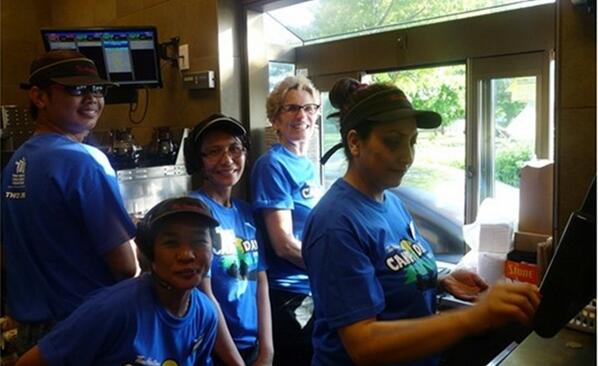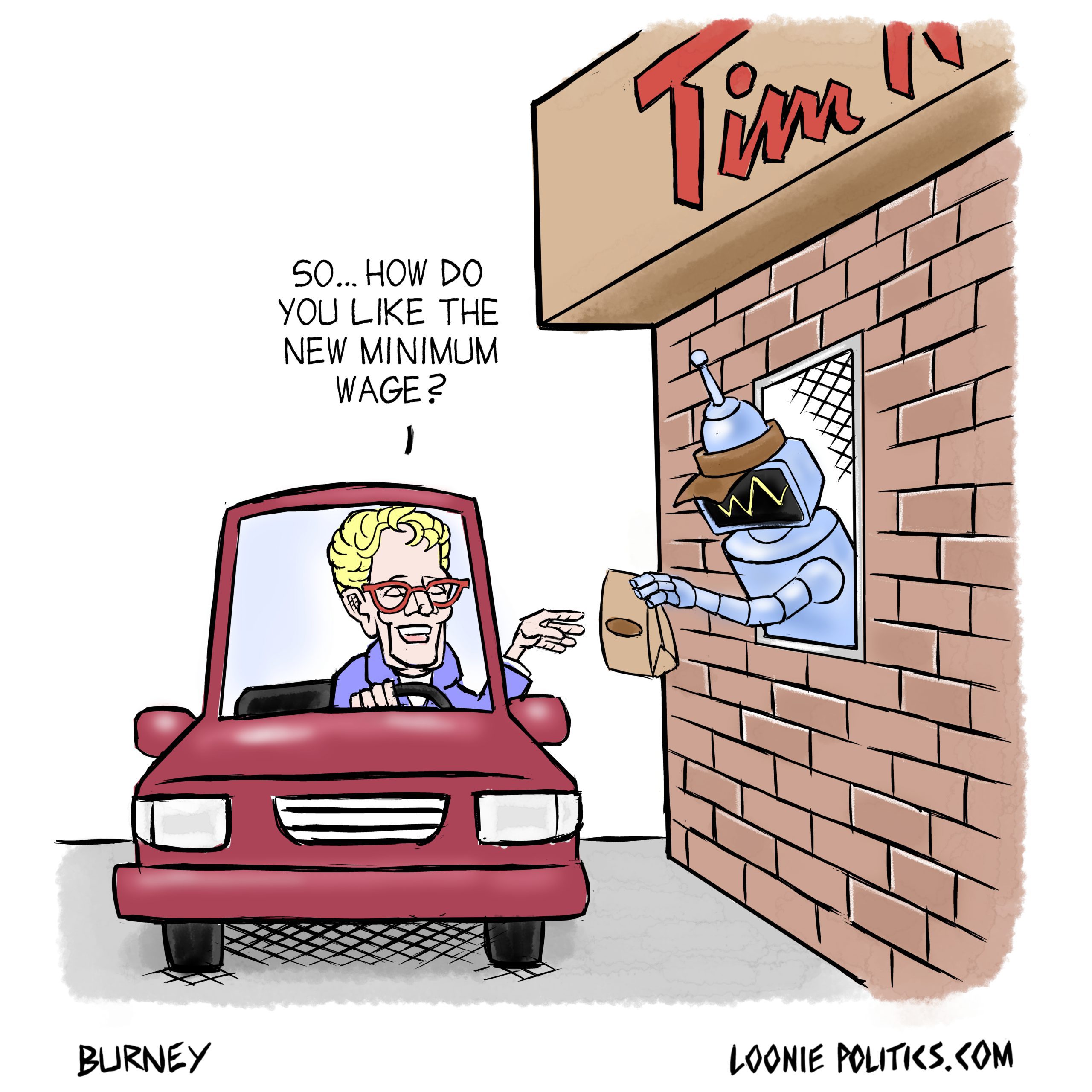How? How is it possible that Kathleen Wynne was able to flip the script yet again and turn herself overnight from a toxically unpopular Premier into the champion of hard-done by, ruthlessly exploited Tim Horton's employees? What political wizardry is this? Did someone in the Premier's Office just flip a switch and activate a whole army of Liberal social media partisans that were lying dormant?
Well….yeah.
The suddenness with which this tempest in a Tim Horton's coffee pot dominated the previously barren political landscape in Ontario is suspicious to say the least. For months, the discourse was dominated by dry, inside baseball talk of trials and complaints over nominations.
Well, except for a slight blip in the social media landscape before the calendar rolled over, where Liberal MPP Ann Hoggarth told business owners that they were effectively bad business owners who shouldn't be in business if they couldn't handle an increase in the minimum wage. A seeming gaffe, in the depths of December when many Canadians were getting ready for vacation…..
But then the story of the greedy Timmies' heirs cutting their employees' breaks broke, and Wynne's populist tweet calling those founders out followed suspiciously soon after. Then came the support from reliably Liberal writers like Bruce Anderson and Michael Coren, and the #15andfairness and #boycotttimhortons and #notimmiestuesday hashtags helpfully provided by members of Canada's labour community.
The efficiency of this process provides a strong case for re-imagining Hoggarth's small business smackdown as a trial balloon for how the current minimum wage war would play itself out.
The NDP was caught completely flat footed by all of the above, despite billing themselves as champions of the minimum wage and having enough of a presence in the labour movement that you would expect that they would have seen this coming.
While Andrea Horwath was photographed standing in solidarity with striking employees in good time, it's clear that she doesn't have a tight enough lock on the unions- raising the possibility of a repeat of the 2014 campaign, where they deserted her for the Liberals.
The PC's and their affiliates fared slightly better, with articles quickly slapped together reminding people that, yeah, sorry, in a free market when wages go up profits go down, or that Wynne went ahead with the increase despite not testing the impact with a study first, or that august institutions such as the Bank of Canada predicted 60,000 job losses as a result of higher wages, or even the fact that Wynne recently appointed the CEO of Tim Horton's to the board of Hydro One.
But none of this could change the fact that Wynne and the Liberals were first off the mark with their lightning quick strike, and that they withdrew quickly from the debate as the PC's scrambled to keep up and fire back.
The right knew it, too, even though it would kill them to admit it. You could find assorted grumblings about the Premier being in "attack mode" or accusing her of "phony populism"- which is exactly the sort of things that Patrick Brown could not do, lest he be accused of "Trump-style politics."
Not that Patrick Brown would touch this issue with a stale Timbit, mind you. The risk-averse PCs are so convinced that a single misspoken word from their leader would cost them the election that their leader hasn't uttered a peep which, in and of itself, speaks to how much power and control the supposedly near-dead Liberals still exert. All we got was a tweet by spokesperson Dan Robertson, retweeted by Brown, which "clarifies" that the PC's support a $15/hour minimum wage, just… more slowly.
How the PC's plan to steer Patrick Brown away from difficult scrapes like this one in the middle of the writ is something they have yet to clarify.
What the PC's should be learning here is that the Liberals can kickstart their machinery whenever and wherever they choose. And if they are not convinced of the power of the Liberal Re-Election System, consider that this isn't the first time an organized boycott of Tim Hortons was attempted. Remember how various forces associated with the right in this country targeted the franchise after they bowed to pressure and pulled ads from Enbridge?
I have no evidence of whether this latest attempt to boycott Tim's is a deliberate example of the recent annoying trend of "borrowing from the opponent's playbook".
But even if it wasn't, it shows that the Conservatives may need a shot or two of espresso if they want to match the Liberal pace during the election.
Photo Credit: Inside Timmies
Written by Josh Lieblein








